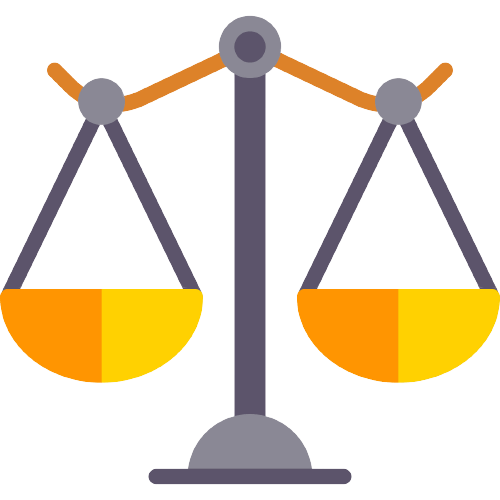What is DSC (Digital Signature Certificate)?
In today’s digital age, ensuring the security and authenticity of electronic transactions and communications is paramount. One crucial tool in achieving this is the Digital Signature Certificate (DSC).
This blog will delve into what a DSC is, its types, how it works, its importance, how to obtain Digital Signature Certificate in India, its common uses, and much more.
Introduction
A Digital Signature Certificate (DSC) serves as a digital equivalent of a handwritten signature or a stamped seal, offering far more inherent security. DSCs are widely used in India for various purposes, including e-filing of income tax returns, company filings, and signing documents online. With the rise of digital transactions, DSCs have become an essential tool for businesses and professionals.
What is a Digital Signature Certificate?
A Digital Signature Certificate (DSC) is a secure digital key issued by certifying authorities to authenticate the identity of the certificate holder. It contains information such as:
- The user’s name
- Email address
- Date of issuance
- The name of the certifying authority
DSCs use public key encryption to create a digital signature. This ensures that the data remains secure and unaltered during transmission. When a document is signed with a DSC, it guarantees that the document has not been tampered with and that the signature is from the authorized person.
Types of Digital Signature Certificates
- Class 1 DSC: Primarily used for securing email communications.
- Class 2 DSC: Used for e-filing of documents with the Registrar of Companies (ROC), income tax returns, and other online transactions.
- Class 3 DSC: Required for high-value transactions or applications that demand high security, such as e-tendering and e-procurement.
How Does a DSC Work?
A DSC uses a pair of keys – a public key and a private key. Here’s a simplified explanation of the process:
- Creation: The certifying authority generates a pair of keys for the user – a private key, which is kept secret by the user, and a public key, which is shared publicly.
- Signing: When a user signs a document digitally, the private key is used to create a unique digital signature. This signature is a hashed value of the document content.
- Verification: The recipient of the document uses the public key to decrypt the digital signature and compare it with a freshly generated hash value of the document. If they match, the document is verified as authentic and untampered.
Why is a DSC Important?
- Authentication: DSCs authenticate the identity of the sender or signer of a document, ensuring that the recipient can trust the source.
- Data Integrity: DSCs ensure that the content of the document has not been altered in transit, maintaining data integrity.
- Non-repudiation: Once a document is signed with a DSC, the signer cannot deny their involvement in the transaction, providing legal proof of the transaction.
- Security: DSCs use robust encryption techniques to secure data, making it highly resistant to unauthorized access and tampering.
How to Obtain a DSC in India
Obtaining a DSC in India involves a few straightforward steps:
- Choose a Certifying Authority (CA): The first step is to choose a certifying authority recognized by the Controller of Certifying Authorities (CCA) in India. Some popular CAs include eMudhra, Sify, and NIC.
- Fill Out the Application Form: Obtain and fill out the application form from the chosen CA’s website. This form typically requires personal details, contact information, and proof of identity.
- Submit Documents: Submit the filled application form along with the required documents, such as a PAN card, Aadhaar card, and passport-sized photographs.
- Verification: The CA will verify the submitted documents and may conduct an in-person verification for Class 3 DSC.
- Payment: Pay the applicable fee for the DSC. The fee varies depending on the type and validity period of the DSC.
- Download and Install: Once the verification is complete, the DSC will be issued. You can download and install the DSC on your computer or use it with a USB token.
Common Uses of DSC
DSCs are used in various domains to ensure secure and authenticated transactions. Some of the common uses include:
- E-filing Income Tax Returns: DSCs are mandatory for companies and LLPs to e-file income tax returns in India. Individuals with large transactions also use DSCs for secure filing.
- Company Filings: DSCs are used for submitting forms and documents to the Registrar of Companies (ROC) under the Ministry of Corporate Affairs.
- Signing Contracts and Documents Online: Businesses use DSCs to sign contracts, agreements, and other legal documents digitally, ensuring the authenticity and integrity of the documents.
- E-Tendering and E-Procurement: Government and private sectors use Class 3 DSCs for e-tendering and e-procurement processes, ensuring secure and authenticated bidding.
- MCA Services: DSCs are required for availing various services on the MCA (Ministry of Corporate Affairs) portal, such as incorporation of companies, annual filings, and compliance filings.
- Employee Provident Fund (EPF): Employers use DSCs to submit EPF claims and other documents online to the Employee Provident Fund Organization (EPFO).
Conclusion
In conclusion, a Digital Signature Certificate (DSC) is an indispensable tool in the digital landscape, providing security, authenticity, and integrity to electronic transactions and communications.
With the increasing digitization of services, obtaining and using a DSC has become essential for businesses and professionals alike. Whether you are e-filing your taxes, signing contracts, or participating in e-tendering, a DSC ensures that your digital interactions are secure and legally recognized.
FAQs
What is the validity period of a DSC?
A DSC is typically valid for one or two years, after which it needs to be renewed.
Can a DSC be used on multiple devices?
Yes, a DSC can be installed on multiple devices, but it is recommended to use it on a secure device to prevent unauthorized access.
Is a DSC legally binding?
Yes, in India, a DSC is legally binding and recognized under the Information Technology Act, 2000.
Can an individual obtain multiple DSCs?
Yes, an individual can obtain multiple DSCs for different purposes or entities.
What happens if I lose my DSC?
If you lose your DSC, you should immediately report it to the certifying authority to revoke the certificate and prevent misuse.



















